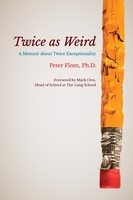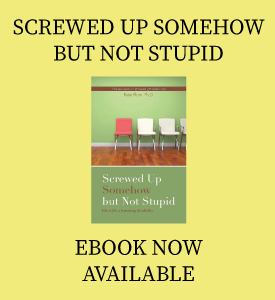Question: Why is dyslexia more common that dyscalculia?
My answer:
We aren’t even sure if it is more common. In fact, some people think it is just as common (see ref 1)
However, it is less diagnosed for several reasons:
- It is less known and less understood.
- The definition isn’t as clear, at least in terms of making a diagnosis. How severe does it have to be? At the very extreme end, there are people who cannot tell you if 4 is bigger than 2 (and may also be unable to tell which of two blocks is larger). But … how about just not learning math facts? Or being really bad at algebra?
- It often gets dismissed as “bad at math”, unless it is very severe. Societal attitudes towards reading and math ability are very different. A kid who can’t read at an age when most can is looked on differently than a kid who is much worse at math than his/her peers. And, in adults, the difference is more extreme: An adult who can’t read (or reads with extreme difficulty) is very stigmatized; an adult who can’t’ do basic arithmetic – well, not as much stigma.
Ref 1: https://www.understood.org/en/learning-attention-issues/child-learning-disabilities/dyscalculia/understanding-dyscalculia



My husband is a mechanical engineer with a patents to his name who often asks me to add 8 and 5 for him because he does not have “time to think”. He is fine with calculus and higher math, though. So, does he have dyscalculia because he cannot mentally add 8 and 5? I do not think so. But if he were not an engineer but let’s say a florist, would he have dyscalculia? Yes. So, it is all a matter of perspective. And if you judge a child before they become what they are meant to become by comparing them with majority of other students, there is going to be many disorders for parents and children to worry about. Because standardized testing can only work for standardized children.
It is a matter of perspective, but being able to add two single digit numbers is pretty useful in lots of ways.